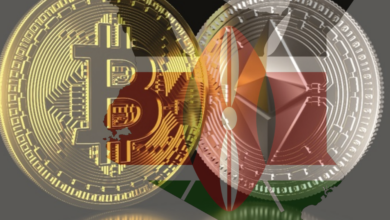Bitcoin Under Uncle Sam’s Wing: U.S. Government Became a Major Bitcoin Holder

The United States government stands as one of the globe’s most substantial custodians of Bitcoin, harboring a reserve of around 200,000 BTC, a treasure valued at approximately $5 billion, as per findings from The Wall Street Journal.
These holdings have been amassed through the forfeiture of assets linked to illicit activities conducted in the shadows of the internet. In this realm of state-owned cryptocurrency stockpiles, the U.S. government’s collection reigns supreme.
Yet, unlike the behemoth crypto whales who ride the turbulent waves of digital currency markets with fevered anticipation, the government appears aloof to the daily whims of Bitcoin’s price fluctuations. It seems resolutely unbothered whether the digital coin ascends to unprecedented heights or plummets to new lows.
The jurisprudential framework that enshrouds confiscated assets stipulates that the government’s claim to these holdings must await the issuance of a final forfeiture order. In this light, one might perceive the government’s dogged adherence to its Bitcoin reserves as a product of inertia, an indomitable reluctance to part with its crypto treasure, rather than a meticulously orchestrated strategy.
The annals of government Bitcoin dealings reveal a history marked by cautious and passive actions. While there have been instances of Bitcoin auctions, whereby the government has sold Bitcoin holdings worth a total of $366.5 million through eleven auctions conducted between 2014 and 2023, there is no evidence of active purchases. The government’s stance, therefore, leans towards preservation rather than expansion.
This prudent reluctance on the government’s part, however, comes at a price. Data presented by Lopp underscores the missed opportunities, indicating that its refusal to part with these Bitcoin holdings has resulted in potential appreciation losses exceeding the $5 billion mark.
One might ponder the rationale behind the government’s firm grip on these digital assets. The complex love-hate relationship that the government shares with cryptocurrencies muddles the answer. From an external perspective, the relentless crackdown on the cryptocurrency industry by federal entities might imply a distinct aversion to digital currencies.
Nevertheless, the acquisition of Bitcoin via seizures tied to the concealed corridors of the darknet suggests a more nuanced narrative.
It hints at an underlying recognition of the inherent value that these digital assets bear, even in the midst of a tumultuous romance with the cryptocurrency realm.




